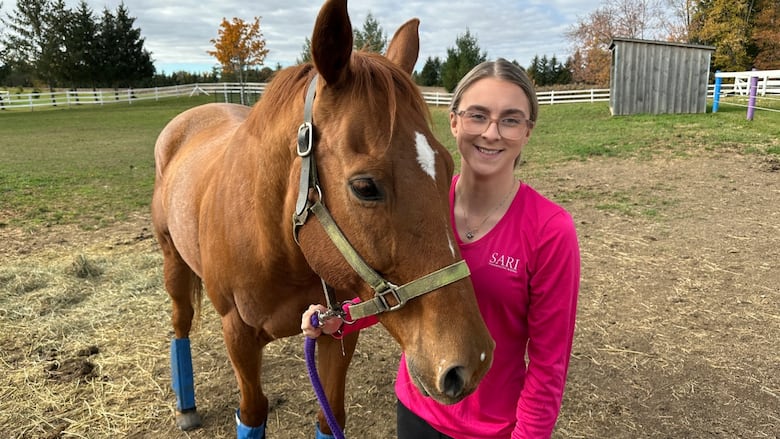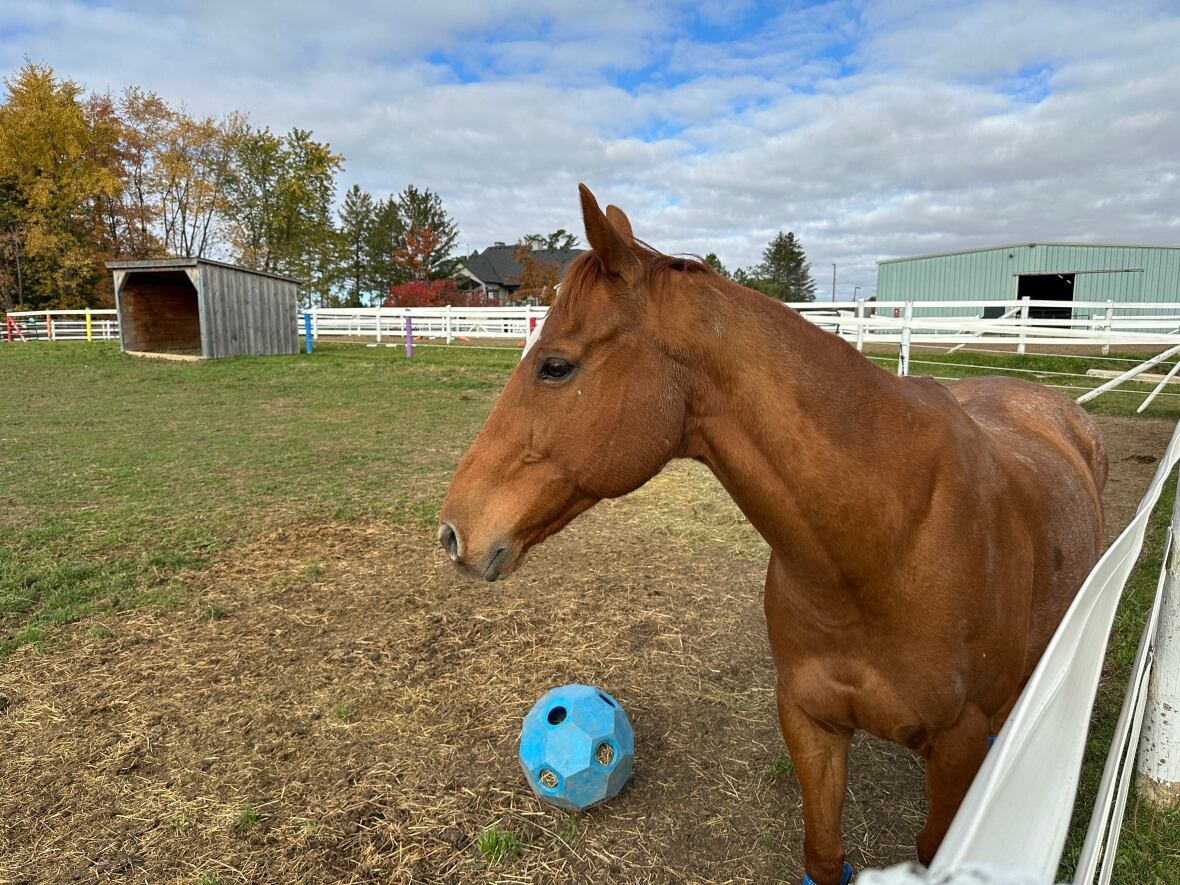Q&A: What it takes to be a therapeutic riding horse
Horses at SARI Therapeutic Riding work with people with disabilities

A horse that makes the cut at SARI Therapeutic Riding in Arva, Ont., requires a certain set of skills. They're hired to work with people with disabilities, and there's a lot on the line. A dependable, calm demeanour is a must.
A couple of times a year, the team at SARI brings on a new horse. Only about one in three end up being a good fit.
The most recent recruit is a 9-year-old thoroughbred named Toto, who was donated by a family in Windsor. For the next month, Toto will go through a series of tests to see if he has what it takes.
Terri-Lynn Thede, the program manager at SARI, spoke with CBC London Morning host Andrew Brown about it.
LISTEN: Meet Toto the horse, a new recruit at a therapeutic riding school in Arva

The following has been edited for length and clarity.
Andrew Brown: What's Toto's story?
Terri-Lynne Thede: He has just arrived on trial to become a potential therapeutic riding horse. Way back when he has just a couple years old he was a race horse, so he was on the track for a short period of time. And the last few years he's been doing eventing. That's dressage, show-jumping and cross-country all in one. He's been doing that for quite a few years with a young girl. I think he'll do great.
AB: Do those qualities transfer to something like this?
TT: Absolutely. Any horse that has been in the showing industry, especially eventing, they've seen all kinds of things. There's a horn at the start when they're off to go, so they're exposed to sounds. There are so many different obstacles, so not much fazes them.
AB: What does it take to be a therapeutic riding horse?
TT: We're looking for horses with a very level-headed temperament. They're not scared of different noises or obstacles that might be around the facility. We're looking for them to be patient, calm, and ready to have fun with us every single day.
Toto will be here for 30 days on a trial basis before we make any decisions on him. He'll be going through different tests with us. We'll take him on a few walks of the facility. And then we'll do exposure work with different games and activities and lessons. He'll be tested with our lift for our riders that are in wheelchairs. We'll be doing lots of different activities to see if he's the right fit for us.
We're looking for any reactions he may have. We want to make sure he's conquering everything with confidence, and that he's comfortable doing those activities.

AB: If Toto does make the cut, who will be riding him?
TT: We have adults and children with disabilities in our program. Every single person that comes through our door has a physicians referral, and is screened by me and our occupational therapist on staff to make sure this is safe and appropriate for them.
AB: What are the benefits of going for a horseback ride?
TT: First of all, they're having the time of their life. You see their demeanour change. You also see physical benefits like core strength, coordination, fine motor skills and social skills. You see emotional relationship building. Anxiety is something we deal with on a regular basis, we tell them to take a deep breathe, and you see their body relax and the horse relax with them.
I've been working with a little girl for two and a half years, and when she came in she was pretty quiet at first. You could tell she had a big personality but didn't really say a lot. And physically she was starting to deteriorate, she had low muscle strength. And now she's on one of our most forward-moving horses. She's able to sit herself upright, and keep those shoulders back, and not slide side-to-side on the horse. And that's huge. Her confidence has grown immensely.
AB: What's it like for you to see growth like that?
TT: It is so rewarding. Honestly, it's the dream job. Sometimes I can't even believe that this is what I do every day.